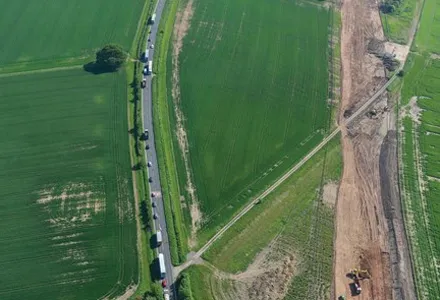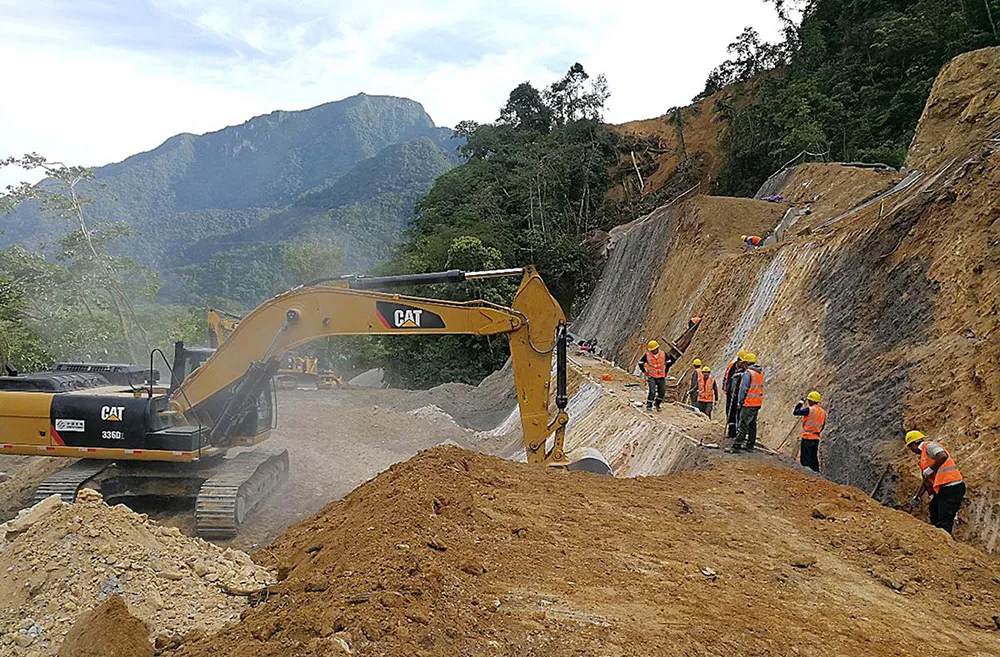
The Xingyi Ring Expressway in Guizhou is renowned as the world’s most impressive expressway in karst peak forests. This 62.5km-long expressway wraps around the south of Xingyi City, a notable mountainous tourism city, traversing through distinctive karst peak forest regions. It links several renowned geological sites, including the Maling River Canyon, Wanfenglin (Forest of Ten Thousand Peaks), Xingyi National Geological Park, and Louna Village, home to the traditional Bouyei ethnic minority.
With a deep commitment to environmental and cultural preservation, the expressway incorporated over 20 cutting-edge technologies in its design, construction, and operation, serving as a model for environmental and cultural conservation. The route was meticulously planned with ecological, cultural, geological, and environmental considerations in mind. Utilizing BIM+GIS simulation design and life-cycle analysis, a tunnel route costing an additional US$7.70 million was chosen to prevent disruption to Louna Village and the farmland cultivated by the Bouyei minority for generations. Remarkably, 91.2% of the entire route achieved zero earthwork disposal, conserving 612,000m² of land. Innovative construction techniques like prefabricated bridge structures and high pile caps minimised excavation by 54,000m³. The tunnel designs, featuring flat entrances, reduced vegetation damage by 47,000m² and further excavation by 89,000 m³.
In the construction phase, 310,000m³ of excavated topsoil was repurposed for landscaping; 1.77 million m³ of tunnel debris was recycled for concrete and roadbed material. Additionally, 70 pipelines were installed to transport bridge construction waste, minimizing ecological disruption. Artificial intelligence expedited the tunnel support parameter selection. Post-construction, 61km of access roads were upgraded for local community use.
Operationally, local flora is used for landscaping, supplemented by a drip irrigation system that cuts water usage by 80% annually, addressing the water scarcity for expressway greenery in karst regions. The expressway also features 85 culverts and six runoff collection ponds to safeguard surface water. Energy-efficient measures include distributed smart solar systems in tunnels, service areas, parking lots, and toll stations, generating 15.2 million kWh of clean electricity yearly. Noise pollution is mitigated through 69 sound barrier sections. These initiatives have collectively reduced carbon emissions by 124,300tonnes and brought tangible ecological benefits.
The expressway’s completion has halved traffic congestion in Xingyi, boosted tourism by 65.5%, and significantly contributed to the economic upliftment of around 301,500 locals. By enhancing transit, connecting cities, and promoting tourism and rural development, the expressway stands as a testament to harmonising engineering with the natural and cultural milieu.









